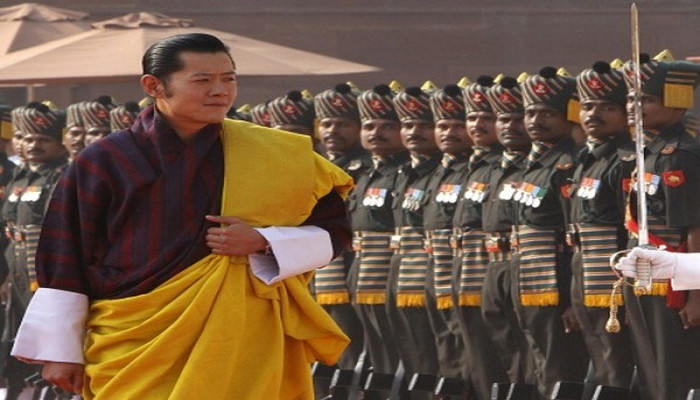Bhutan reveals Gelephu city project, expanding from India to Southeast Asia
- In Reports
- 11:45 AM, Dec 18, 2023
- Myind Staff
In the 116th National Day address, Bhutan's King, Jigme Khesar Namgyel Wangchuck, underscored the significance of the Gelephu Mindfulness City, drawing attention to the continuing economic transformation in South Asia and the extensive opportunities it presents for the region, which is home to approximately two billion people.
A proposed land connection originating from Gelephu or Samdrup Jongkhar, cutting across Assam and Northeastern Indian states, extends to Myanmar, Thailand, Cambodia, Laos, Vietnam, Malaysia, and Singapore. This initiative forms a dynamic economic corridor that actively bridges South Asia to Southeast Asia.
In his address, the Bhutanese King emphasized the unique opportunity at hand, stating, "We are in a unique position to reap great benefits if we seize the opportunity, make good plans, and work together diligently." He further disclosed that, during his recent visit to India, the Indian government had committed to enhancing the infrastructure of roads leading to Bhutan.
The King also expressed satisfaction, saying, "I am also pleased to share that during my recent visit to India, the Government of India expressed their full commitment to improve and expand the major roads leading to Bhutan. They also pledged to connect two or three of our border towns with railway lines. I would like to express our heartfelt gratitude to Prime Minister Narendra Modi and the Government of India for their continued goodwill and support."
According to The Bhutanese, the Gelephu Special Administrative Region (SAR) is envisioned as an autonomous economic hub with the authority to shape essential laws and policies. With executive autonomy and legal independence, this SAR aims to become a distinctive economic center, attracting foreign investment through a favorable business environment and compelling incentives.
The establishment of the Gelephu Special Administrative Region (SAR) reflects a commitment to creating a unique and conscious economic hub, surpassing traditional models. Rooted in Bhutan's vision of Gross National Happiness (GNH), the Mindfulness City seeks to promote sustainable businesses inspired by the country's Buddhist heritage. A stringent screening process, employing an invitation-only approach, will ensure alignment with Bhutanese culture and values for businesses and individuals coming to Gelephu.
Encompassing 1000 sq km (250,000 acres), the Gelephu Mindfulness City constitutes 2.5 percent of Bhutan's total surface area. The project, anticipated to yield substantial benefits nationwide, requires significant investments in public infrastructure, including roads, bridges, and airports.
Gelephu's economic growth will create private sector opportunities, benefitting farmers and all dzongkhags. Foreign Direct Investment (FDI) is set to bring jobs with international scales and advanced technology. King Wangchuk prioritizes Energy, Connectivity, and Skills, aiming to expand Bhutan's energy sector using diverse sources for a flourishing economy and equitable wealth distribution.
In his address, King Wangchuk highlighted the Gelephu project's transformative nature, describing it as a pivotal moment in history for his reign and the current generation. He emphasized that beyond economic goals, Gelephu is envisioned as a gateway connecting Bhutan to the world, serving as a conduit for global markets, capital, innovative ideas, knowledge, and technology.
Image source: ANI







Comments